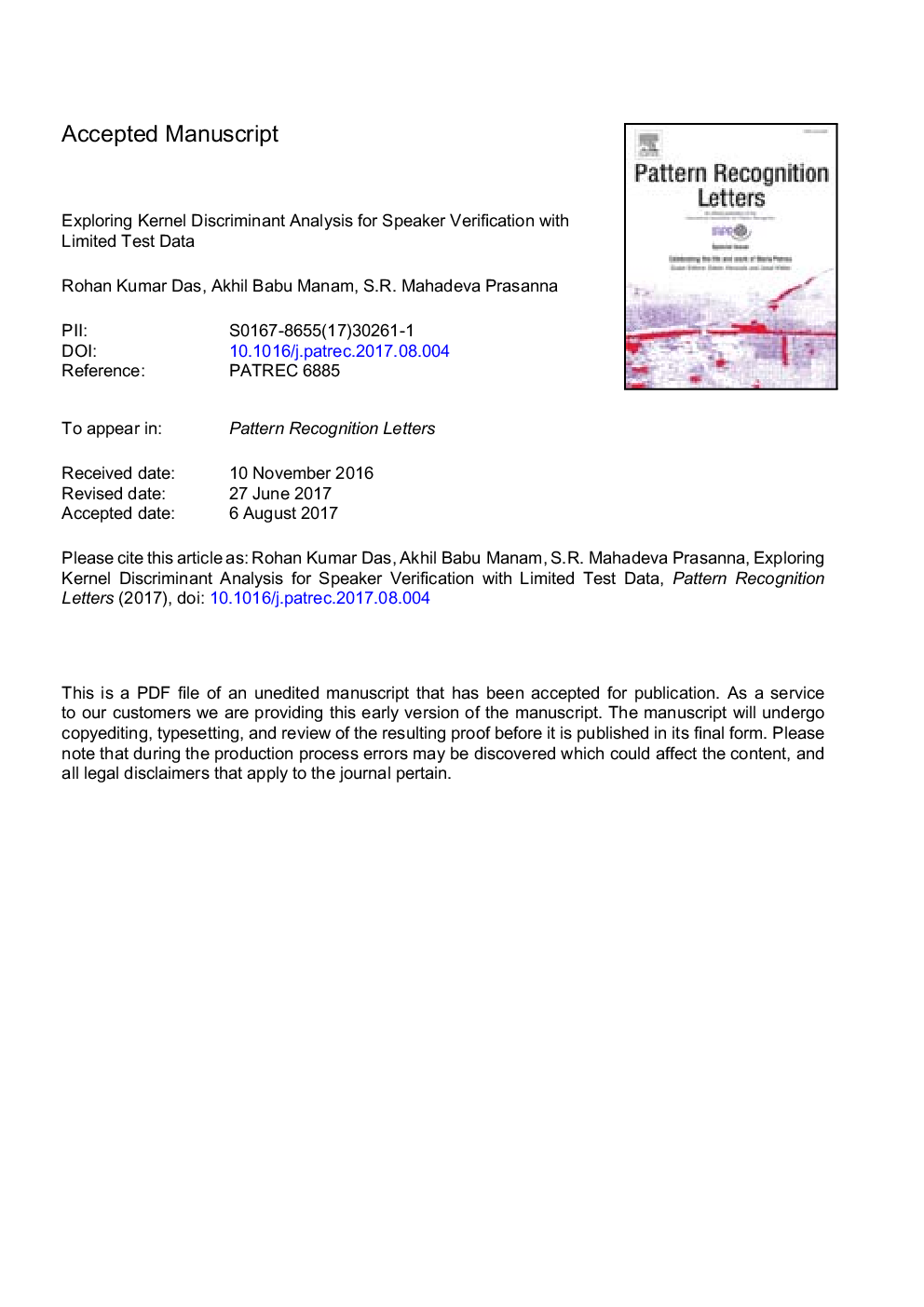| Article ID | Journal | Published Year | Pages | File Type |
|---|---|---|---|---|
| 4969996 | Pattern Recognition Letters | 2017 | 12 Pages |
Abstract
Speaker verification (SV) with limited test data condition is desirable for practical application oriented systems. The i-vector based speaker modeling has shown its significance for SV tasks, but its performance degrades as the utterance becomes shorter. The i-vectors apart from being compact and dominant speaker representations, bear channel and session information, which has to be compensated for robust speaker modeling. The conventional techniques for channel/session compensation include linear discriminant analysis (LDA) followed by within class covariance normalization (WCCN) and Gaussian probabilistic linear discriminant analysis (GPLDA) that eliminate the channel/session variation across the i-vectors by assuming these are linearly separable. In this work, a novel method for channel/session compensation is proposed using kernel discriminant analysis (KDA) that projects the i-vectors into a higher dimensional space and performs discriminant analysis to remove the unwanted information for speaker modeling. The SV studies are performed on standard NIST speaker recognition evaluation (SRE) 2003 and 2008 databases that convey the significance of the proposed compensation over the conventional methods, which is greater on using short test utterances. The achieved improvements are hypothesized due to the non-linearities of channel/session information in the i-vector domain.
Related Topics
Physical Sciences and Engineering
Computer Science
Computer Vision and Pattern Recognition
Authors
Rohan Kumar Das, Akhil Babu Manam, S.R. Mahadeva Prasanna,
